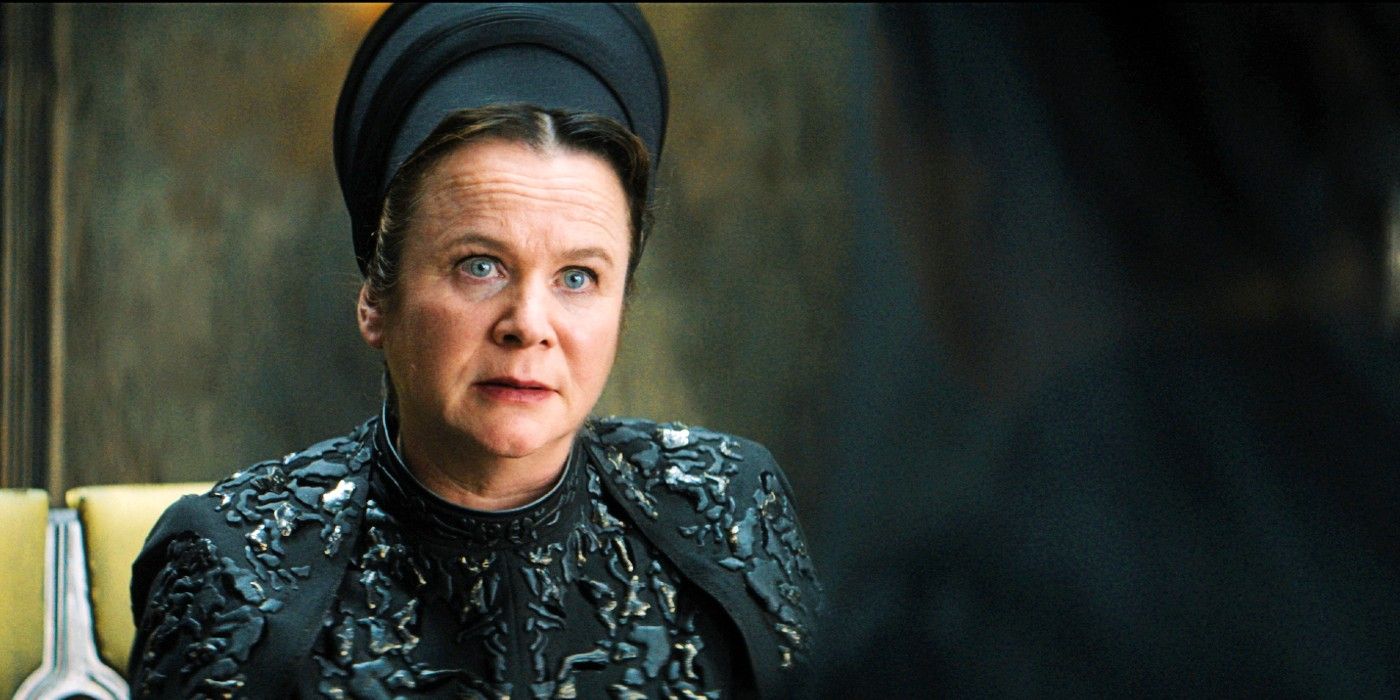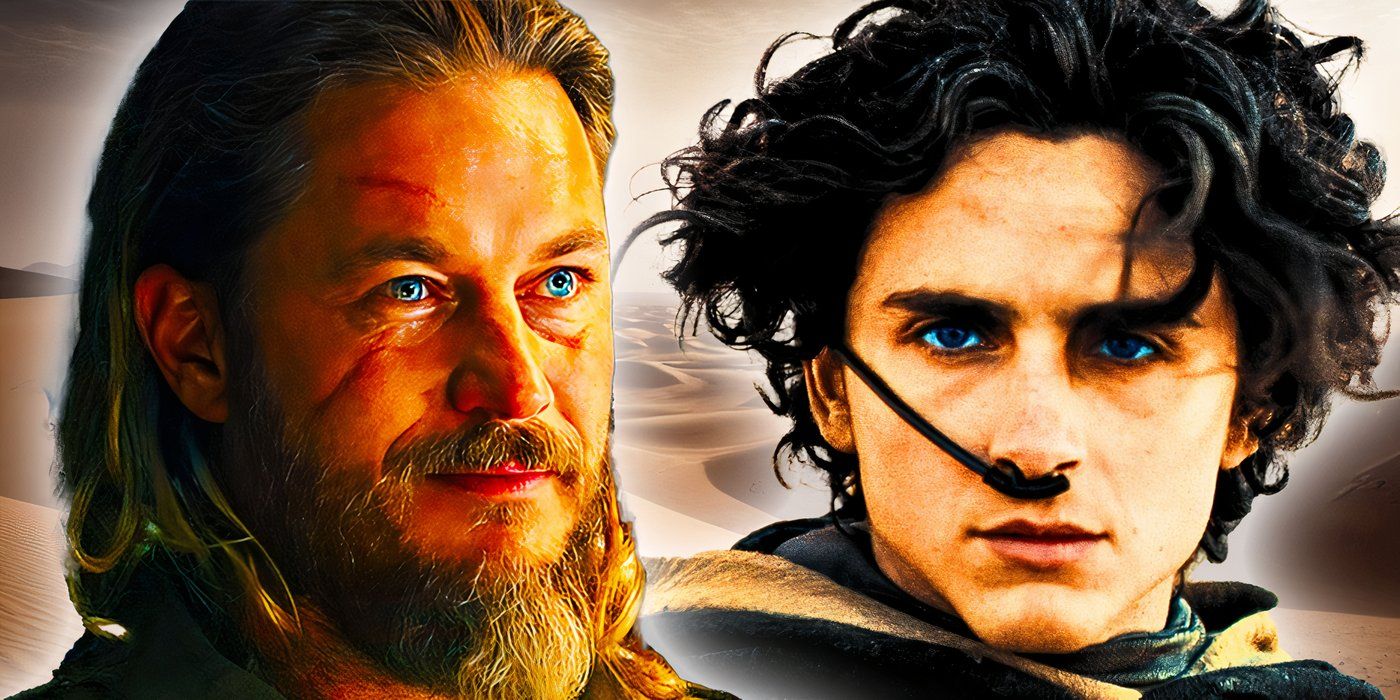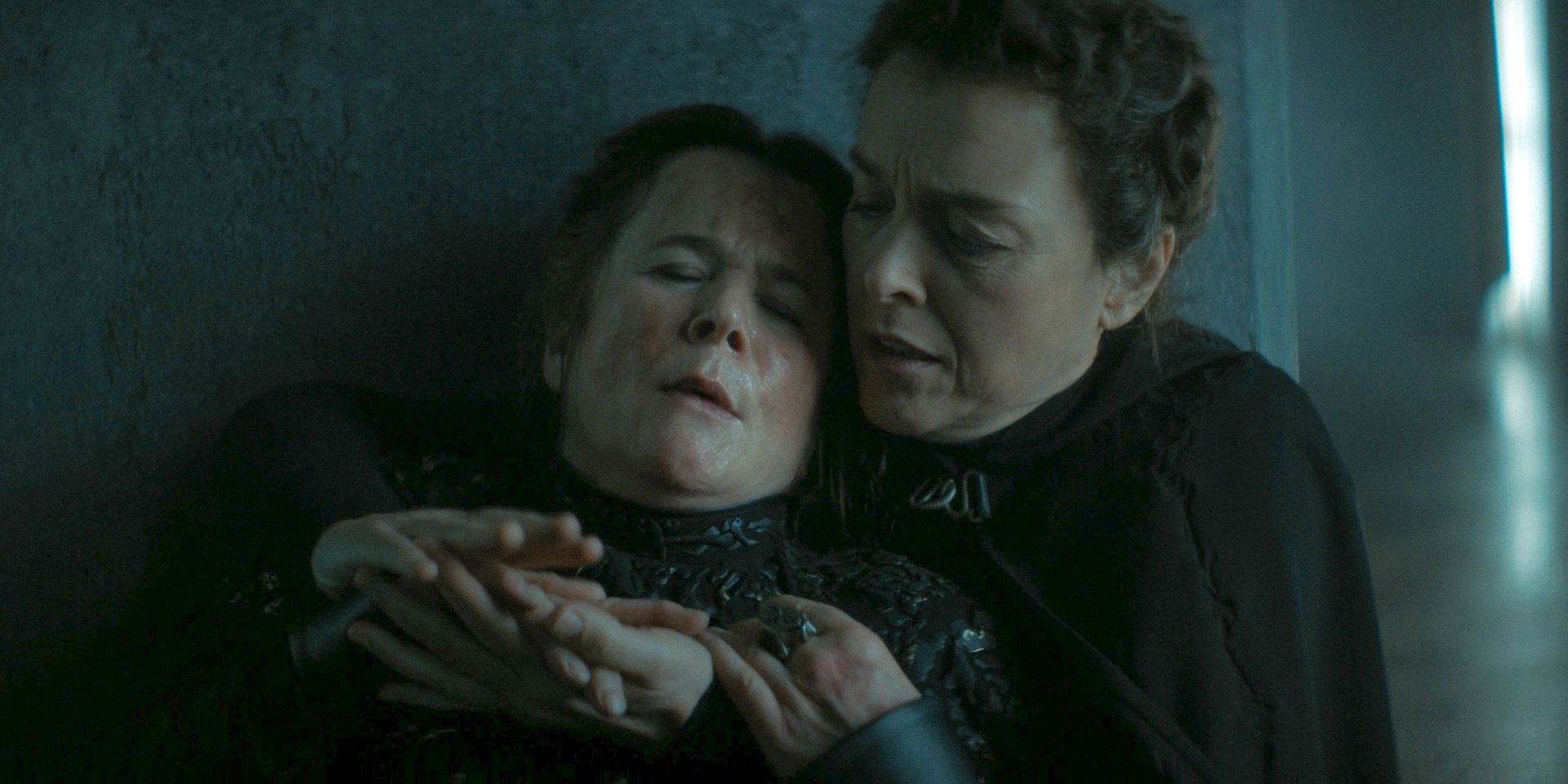
HBO Dune: Prophecy has completed its first season and it's worth evaluating why it fell short. Denis Villeneuve's adaptations of Frank Herbert's original novel popularized the Dune title in modern pop culture, combining blockbuster entertainment with cinematic excellence for two films that achieved awards acclaim and box office success. With that, it's no surprise that Warner Bros. wanted to develop a high-budget spinoff TV series examining one of the universe's most compelling elements: the Bene Gesserit. The show was received mediocre reviews, with 70% on Rotten Tomatoes and an even lower audience score of 66%.
The fact is Dune: Prophecy It wasn't the blow it could have been. It wasn't as popular as the Dune films, and was not as popular as Game of Thronesthe show HBO modeled it after. Whether this could happen in the future is open to question. Dune: Prophecy could come back with an unbelievable sophomore season, but the problems behind the scenes and on the show itself deserve to be addressed. Like it or not, the series hasn't lived up to the potential this franchise has proven itself capable of.
Dune: the prophecy was not made by Denis Villeneuve
Denis Villeneuve gave up to prioritize films
Denis Villeneuve is the maestro that the public came to associate with Dune universe, and with good reason. He developed a prolific novel, long considered unfilmable, and made two excellent films. He did it for Dune What did Peter Jackson do for The Lord of the Ringscreating a definitive edition of one of the most imaginative novels ever written. While the TV adaptation was crafted with the production value audiences have come to expect from HBO, it lacked the masterful visual flair that Villeneuve and cinematographer Greig Fraser bring to the table.
Denis Villeneuve was initially linked to the project in 2019 (via Variety), set to direct the pilot and produce the series. This would have set the tone for the rest of the series, maintaining a more direct fusion between the films and the television prequel. However, Villeneuve abandoned the project over time, dedicating himself completely to the now trilogy of Dune films he was scheduled to make. Rotten Tomatoes' consensus review of season 1 was that “Lacks the spice of Denis Villeneuve's films“, It is important to note the degradation in the quality of their interpretations.
Dune: Prophecy's Long Production and BTS Issues Caused Problems
HBO's Dune Series Had Development Lulls
Dune: Prophecy production dates back to 2019, and the show's development faced several obstacles behind the scenes that could have contributed to the first season's difficulties. First, the series received criticism for the lack of female representation on the initial production team, particularly when exploring the Bene Gesserit (via Terms of Reference), which led to Dana Calvo being hired as co-showrunner. Jon Spaihts, the original showrunner, was later removed from the project, with The Hollywood Reporter stating: “Legendary TV was not satisfied with the first works presented by Spaihts.” Similar problems persisted for years until the 2024 launch.
Adapting non-Frank Herbert Dune books has always been a risk
The Expanded Dune Books Are Not As Loved As The Originals
THE Dune the books are complicated to delve into and there is discrepancy among fans as to what is considered “canon”. Frank Herbert wrote six volumes of his history, and these are generally considered the only canonical chapters. His son, Brian Herbert, teamed with Kevin J. Anderson on several expansion novels. While the expanded Dune books aren't hated, the typical analysis is that they simply don't have the depth of the originals despite expanding the in-universe lore in several ways. Dune: Prophecy is based on his 2012 book Dune Brotherhoodalthough he expands it with new material.
Adapting source material that is widely considered mediocre in comparison is hard to beat.
In many ways, Dune: Prophecy the answer compared to Denis Villeneuve's films is very similar to the difference between the books. It would be difficult to say that it is a bad program. It is not. But When compared to something exceptional and prolific, it's hard not to look at it and wish for more. Adapting source material that is widely considered mediocre in comparison is hard to beat. The writers didn't have any great adaptation ideas and also had to keep their original ideas plausible within the confines of a pre-existing world.
The Bene Gesserit are less interesting the more you explain them
The Bene Gesserit works best as a mysterious force
When building an expansive fantasy or science fiction universe, mysticism is a crucial aspect. For the reader or viewer to feel involved and immersed in this world, they need to feel that it is bigger than themselves. This is part of what makes the Bene Gesserit so compelling in the original books and films. They are on the screen; the viewer knows what their goals are, but they also don't know the world through their lens. There is a mysticism inherent to Bene Gesserit that implies that something profound and unusual is happening behind closed doorsbut it's out of reach.
When the ambiguity is removed and they take center stage, they lose much of the intrigue that makes them so fascinating.
Sometimes art is best left mysterious. The Force in Star Wars the franchise is often the best example of something that gets ruined when it's explained too much. The original trilogy presents this as a mystical, ambiguous force that works in ways that cannot be precisely defined. When midi-chlorians were introduced into The phantom menacethe veil was uncovered and was not so attractive. Consider the same logic for the Bene Gesserit. When the ambiguity is removed and they take center stage, they lose much of the intrigue that makes them so fascinating.
Dune: Prophecy had a great cast, but didn't develop its characters enough
Six episodes wasn't enough time to create meaningful characters
Dune: Prophecy the cast is incredibly talented. Putting on a bad show with the likes of Olivia Williams, Emily Watson and Mark Strong, just to name a few, would be virtually impossible. That said, the characters don't allow them to access their full potential. In just six episodes, Dune: Prophecy can clearly define the goals and desires of a fairly large castand the viewer has an idea of what each one does. But these characters don't feel alive.
Those moments in Dune movies where you get a surprising laugh from Stilgar or Duncan Idaho are vital. These are the scenes that make the world seem lived in. With just six episodes to develop so many characters Dune: Prophecy it has well-written discussion scenes and drives the plot through dialogue, but without personality, it's difficult for the audience to resonate and feel what's at stake. The writers can tell the viewer what the stakes are, but if they can't connect to the characters, it doesn't matter.
Sources: Variety, Terms of Reference, The Hollywood Reporter

